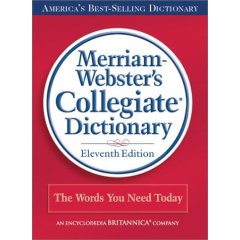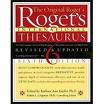| Announcements |
!
Final exam on Tuesday, September 25, 2007,
1-3 p.m.
-
The final exam, worth 70 points, will consist of three parts: one on an unseen poem, and two on class and coursebook material covered since the midterm (from symbol p. 46
to the end). There will be some ID, some short answers, some
slightly longer answers, and at least one essay. The basic
requirement for any college writing in English: clear,
to-the-point answers to the questions, organized writing in
complete sentences using grammatical and idiomatic English. Budget your
time well.
-
Sample
essays about literature and writing tips
-
Review
literary terms
!
Assignments review
-
1:
Linda Pastan's "Ethics" (see remarks)
-
Linda
Pastan (bio, two poems, link to
PBS interview)
-
Conversation:
Pastan (Newshour with Jim Lehrer 2003 interview on PBS;
video, audio, transcript)
-
Linda
Pastan: "Ethics" (bio, comprehension quiz, as
you read, after you read)
-
Rembrandt:
Life, Paintings, Etchings, Drawings and Self-Portraits
(well-organized site with a very large collection of images)
-
Rembrandt
van Rijn (discussion of his painting techniques, images)
-
2:
Susan Mitchell's "From the Journals of the Frog
Prince" (see discussion)
-
3:
Robert Frost's "A Considerable Speck" (see remarks
and sample answers)
-
4:
Claude McKay's "If We Must Die" (see remarks)
!
Our
class Poetry Conference information
!
The course Blackboard
may begin shutting students out in preparation for next semester.
If you can't log in, e-mail your literary observations and discussion
to me and I'll post them on our class website instead.
|
| Course Outline |
Detailed
schedule (group 3)
Reading: Coursebook
(includes poems, reading questions, and key literary terms)
Requirements and Expectations
-
Reading Responses: You
may e-mail these to me as often as you wish, but at least once
every week. Think of these as an attempt to explain, discuss or
comment on a question that you pose about the poems or other
reading material. I don't expect more than a paragraph or two but
these should be well thought out. Quality is more important than
quantity. I am always willing to discuss your ideas or questions
about the reading or about the course.
-
Attendance and Participation:
Discussion of the poems and reading materials will be a big part
of this class and you are encouraged to express your opinions,
share observations and ask questions. This is an important way to
learn and increase your understanding about poetry. Use this
opportunity in class to expand your perspectives! See Student-Led
Discussion Schedule. (Word
file version)
-
There will be reading responses
that you e-mail me occasionally, four take-home assignments, a
midterm, a final paper and presentation, and a final exam.
Syllabus
(Word file)
Blackboard
Academic Suite for Group 3
|
| Studying
Literature |
|
| Poetry |
-
Magma
Poetry Online (companion website to the contemporary poetry
magazine Magma Poetry)
-
The
Poetry Foundation
-
Like
Waiting for April (blog with tons of poems by a great variety
of authors)
-
The
Academy of American Poets (poets, poems, audio, essays,
interviews, reading recommendations, on writing)
-
The
Poetry Archive (poets, poems, historic recordings, guided
tours, resources)
-
The
Poetry Archive: For Students (poet in residence blog where
you can write in comments and questions, other poetry
websites, how to get the best of the archive, listening to
poetry, historic recordings)
-
Representative
Poetry On-line (wonderful resource site, includes poets,
poems, timeline, glossary, bibliography, and more)
-
Poetry
Out Loud (video [11:40 min.], sound clips, and photo gallery of the 2006
national finalists; the video captures wonderfully the atmosphere of
the competition with comments about what poetry means to the different
contestants)
-
BBC
Poetry Please (Roger McGough presents listener-requested
poems, discussion of poetry, audio by various readers)
-
Analyzing
Poetry (pdf file)
-
Favorite
Poem Project (interesting video collection of Americans
reading and talking about their favorite poem and a bit about
themselves)
-
Poetry
Magazine (hundreds of poems, poet interviews, link to brief
bio archive, podcasts on poetry, audio files where you can listen
to poems being read)
-
Erin's
Poetry Page (nice collection of poetry, informal and friendly
introduction to well-known poets and poems)
-
Poetry
180 ("How to Read a Poem Out Loud," 180 poems)
-
The
Library of Congress: Poetry and Literature Center
-
Poetry:
Introduction by Bernardine Evaristo
-
Poets'
Corner (user-friendly, photos)
-
"A
Field Guide to the Poetics of the '90s" by R. S. Gwynn
-
"21st
Century Modernism: Introduction" by Marjorie Perloff
-
"The
Genealogy of Postmodernism: Contemporary American Poetry"
by Albert Gelpi (long article)
-
"The
Mystique of the Difficult Poem" by Steve Kowit
-
Poetry
Speaks: Hear Great Poets Read Their Work from Tennyson to Plath.
Eds. Elise Paschen and Rebekah Presson Mosby. Naperville,
IL: Sourcebooks Mediafusion, 2001. (book and 3 audio CDs)
|
| Writing |
|
| Useful
Texts |

|
Abrams, M.
H. A Glossary of Literary Terms. 8th ed.
Boston: Thomson, 2005.
|

|
Gibaldi,
Joseph. MLA
Handbook for Writers of Research Papers.
6th ed. New York: Modern Language Association of America, 2003.
(library has 5th ed.)
|
|

|
Merriam-Webster's
Collegiate Dictionary. 11th ed. Springfield, MA:
Mirriam-Webster, 2003.
|

|
The New
Princeton Encyclopedia of Poetry and Poetics. Eds. Alex
Preminger, Terry V. F. Brogan, and Frank J. Warnke. Princeton,
NJ: Princeton UP, 1993.
|

|
Oxford
English Dictionary. 2nd ed. 20 vols. Oxford:
Oxford UP, 1989.
|
|

|
Roget's
International Thesaurus. 6th ed. Ed. Barbara Ann
Kipfer. New York: Harper, 2001. (library has 3rd ed.)
|





